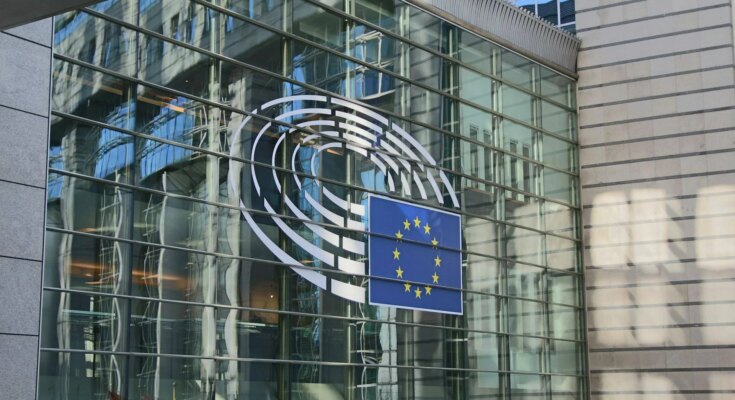A A sharp increase in the price of tobacco products will “encourage consumers to choose illicit products rather than quit”. He stated it Francesco Moscone, professor at Ca’ Foscari University of Venice and Brunel University of Londonin a hearing in the European Parliament focused on the Commission’s proposal to amend the EU Directive on tobacco taxation.
The expert noted that illicit trade should be included in the EU executive’s assessment, and underlined that data from the European Anti-Fraud Office combined with publicly available tax information “reveals a statistically significant correlation between excise levels and illicit trade. In other words, higher taxes are generally associated with increased illicit activity.” The Commission proposal “assumes low price sensitivity, with estimated elasticities of -0.5 for cigarettes and -1.4 for new products.
But research shows that new nicotine products are more price sensitive, with elasticities ranging from -1.6 to -2.2, while the World Health Organization estimates the elasticity for cigarettes at -0.4. “These figures show a clear reality: sharp price increases will encourage consumers to choose illicit products rather than quit smoking,” Moscone said. The low elasticity of cigarettes, he explained, means that consumers are “less likely to quit smoking”, but will switch to cheaper and potentially illegal products from outside the EU”. And for new products, higher elasticity “indicates a faster shift to the black market, which is currently largely supplied by cheap and unauthorized Chinese products.”
In addition, a uniform increase in EU excise rates will have different impacts on member countries, because the macroeconomic conditions in these countries are very different, the professor continued. “A single minimum level assumes equal incomes and the same ability to absorb price changes, but Bulgaria’s GDP per capita is eight times lower than Luxembourg’s GDP. When the same tax increases are implemented everywhere, the burden faced by low-income regions becomes greater, because the same price increases take up a large share of household income.”‘
Consider the impact of inflation on the EU’s economic recovery
The European executive’s proposed revisions acknowledge regional income differences by adjusting minimum excise tax rates to reflect purchasing power, but the purchasing power parity component “must be higher to align markets in real rather than nominal terms. Ignoring this reality risks creating a lose-lose scenario for everyone: member states lose tax revenues, consumers remain smokers but use unregulated products, and criminal networks gain new profit streams,” Moscone warned.
The professor then went on to consider the systemic impact of the Commission’s proposal, whose impact assessment stated that the proposed excise tax adjustment could increase inflation at the EU level by around 0.55%. “This is not a trivial problem: excessive inflation creates a negative drag on consumption, especially in a slowing economy,” and also affects spending to finance debt, Moscone said. “In recent years, inflation in the EU has reached historic highs: forecasts show that inflation is slowly declining, but its path remains fragile, and an increase of 0.55% would have a negative impact on the recovery”
The most immediate impact, he continued, is a reduction in families’ purchasing power as the cost of living exceeds wages and real incomes fall, cutting spending and increasing uncertainty. All this, the economist added, could lead the ECB to take action that further curbs demand. Meanwhile at a public finance level, given the approximately 15 trillion euros of public debt held by the EU, an increase in inflation forecasts by the European Commission would lead to an increase in government interest payments of between 12 and 16 billion euros, which “could potentially cancel out almost all the expected revenue gains”.
‘Customs on nicotine products are worth the risk’
When reviewing the Taxation Directive, it would be more appropriate to apply risk-proportional taxation rather than applying harmonized tax rates to all tobacco and nicotine products. The economist noted that new nicotine products (heated tobacco, nicotine pouches and e-cigarettes) were “identified as less harmful”, pose “different levels of health risk” and “when used as substitutes, can reduce harm”. These elements are verified by independent state scientific research institutions such as Germany’s Bfr, Belgium’s Higher Council of Health, the UK’s Toxicity Committee and the US Food and Drug Administration, “which consistently find that the latest nicotine products are less toxic than combustible cigarettes”, Moscone stressed, and said he was ready to revisit his position if scientific research changes.
‘Savings in Italy of 700 million if half of smokers switched to low-risk products’
But according to recent research, “if half of smokers in Italy switched to lower-risk products, such as heated tobacco and e-cigarettes, we could save around 700 million euros in direct costs every year. And the indirect savings could be even greater.” Therefore, the EU executive’s approach “is not in line with the above scientific evidence, or with the way the EU manages other sectors. In many areas, the EU applies a risk-proportional tax to avoidable health costs”.



